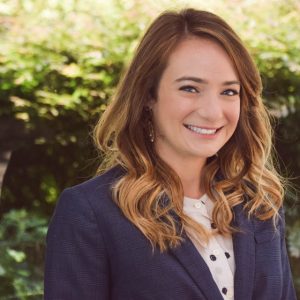Dr. Kristen Lawson discusses the immediate and longer-term resources and treatments that victims of sexual assault can find at their OB/GYN office.
Before I became a physician, I spent several years volunteering in an emergency department as a patient advocate for victims of sexual assault in Richmond, VA. I know the trauma associated with sexual assault can create personal, medical, and legal challenges that can be overwhelming without support.
April is Sexual Assault Awareness Month, and I’d like to give some insights on how common sexual assault is and how OB/GYN offices can provide support and resources to victims – both immediately following an assault and/or years later. I’ll share how you can help support survivors, too.
How common is sexual assault?
Unfortunately, sexual assault is prevalent throughout the world and remains a significant problem in central Virginia today. About 19% of US women surveyed reported that they had experienced a sexual assault in their lifetime, though many instances go unreported. We know that, statistically, sexual assault is more prevalent among younger women. Some studies have reported an incidence as high as 25% among college-age women.
How Can Your OB/GYN Help?
One area of support and healing following a sexual assault can be your appointment with your gynecologist. Whether their assault occurred recently or in their past, survivors should know that their gynecologist’s office is always a safe place to confidentially discuss the physical and psychological effects of the trauma they experienced without judgement. Your gynecologist is uniquely positioned to offer support through medical treatment and referral to mental health specialists.
Immediate Survivor Needs
Immediately following a sexual assault, a survivor may desire initial or repeat testing for sexually transmitted infections and pregnancy. Your gynecologist can also offer prophylaxis (preventative measures) against or treatment of sexually transmitted infections as well as emergency contraception. Many gynecologists can offer medications to ease the effects for survivors experiencing post-traumatic stress disorder or depression. They can also refer survivors to mental health professionals.
Longer-term Survivor Needs
In many cases, victims don’t report sexual assault right away or get the resources and support they need afterwards. In fact, many survivors do not tell anyone about their experience until years later. Even if their sexual assault happened a long time ago, survivors can feel comfortable disclosing this information to their gynecologist.
Talking to a gynecologist can help survivors find treatments and resources that could improve their quality of life–especially if they find that a past assault is having a lasting impact on their sexual relationship with their current partner. We know that female sexuality is complex, but many women find improvement in their quality of life with treatments prescribed by their gynecologist. These treatments can include medications, pelvic floor physical therapy exercises, or couples therapy.
I strongly believe in not taking away a survivor’s agency by making decisions about their treatment for them. Sexual assault takes away agency; my job is to restore that agency when it comes to survivors making decisions about their own bodies.
How Can You Help?
Sexual assault is so prevalent that odds are someone in your life is a survivor. Remember that belief, support, and kindness for those you love going through recovery can be instrumental in their healing process.
In my time as a patient advocate, I learned how deeply shame and self-blame are intertwined in many survivors’ stories. It is my practice to listen to and believe survivors. I reassure them that like those assailed in any other violent crime, sexual assault against them is not their fault. Sometimes providing a listening ear in a non-judgmental manner is the most helpful thing you can do for a loved one who has suffered from sexual assault.
Denim Day
There are also ways to show support for victims in the community and help spread awareness about sexual assault. VPFW will be raising money for the James House Shelter (click here to donate) and participating in Denim Day on the last Wednesday of April by wearing jeans in honor and support of sexual assault survivors.
Denim Day came to be after a sexual assault conviction in Italy was overturned by the Italian Supreme Court in 1999 because the victim was wearing tight-fitting jeans at the time of her rape. A statement from the Court argued that because the victim wore very tight jeans, she had to have helped her rapist remove them, meaning it must have been consensual sex. Women and men across the world wear denim on this day every year to shine a light on the fact that victim blaming is still happening and there is no excuse for rape. Please join us in this small act of advocacy that underlines a much deeper drive to care well for all victims of sexual assault and work towards a better world.
We’re Here When Survivors Need Us
At one point or another, you have probably heard your gynecologist ask if you feel safe at home. We screen all our patients for a history of sexual assault, and we know that a visit to the gynecologist’s office may be the only time a survivor feels safe talking about their experience. Please know that we are here to provide resources, treatment, and healing for anyone who is suffering.
To schedule an appointment with a VPFW provider, you can call us at 804-897-2100 or set an appointment online.
